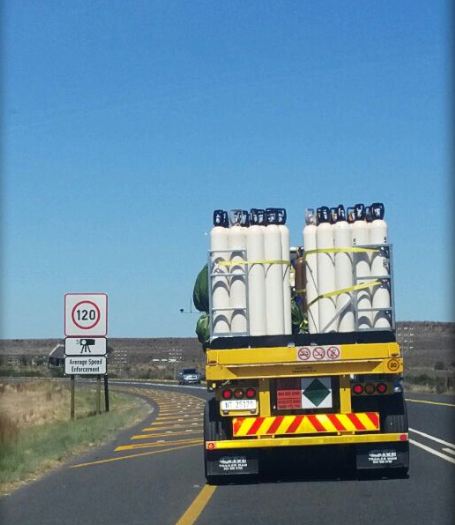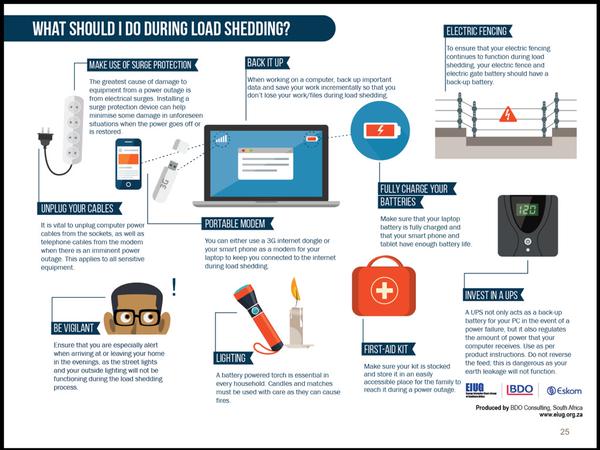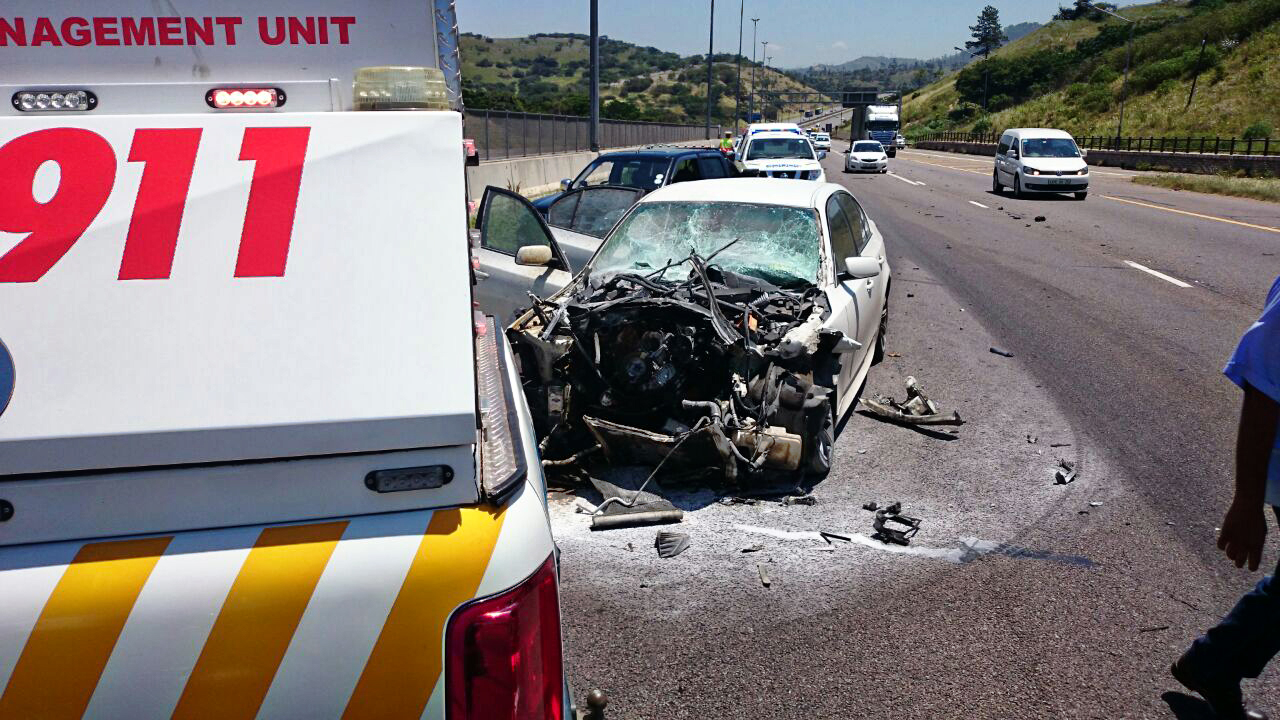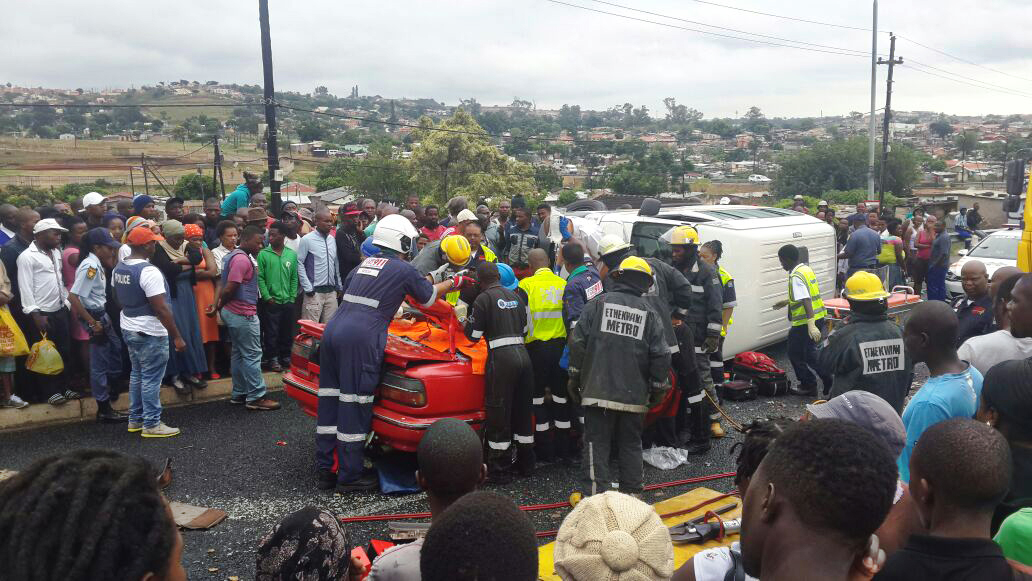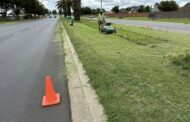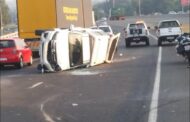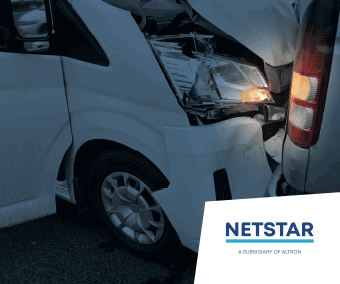With more load shedding on the cards, members of the public are considering alternate ways to keep the lights on.
People are also contemplating the use of gas to keep the kitchen going. ER24 urges people to exercise caution when using gas. The incorrect use of gas can lead to severe injuries, death and damage to property.
ER24 paramedics have in the past attended to incidents involving gas cylinder explosions. The outcome of these incidents ranged from severe damage to property and patients sustaining burn wounds.
Gas cylinders must be filled or exchanged at a reputable dealer.
Kevin Robertson, the chief executive officer of the Liquefied Petroleum Gas Safety Association of South Africa (LPGSASA), said LPGas cylinders are manufactured to extremely high standards however incorrect handling or filling could result in failure.
“Ensuring a cylinder is properly maintained is extremely important. This is why all commercially branded cylinders are returned to the depots of the brand owners. Here the cylinders can be carefully checked and maintained. Where filling is undertaken it can be done so under supervised and controlled conditions.
“Cylinders which are illegally filled by someone other than those authorised by the brand owner, can be potentially hazardous,” he said.
A cylinder should only be filled to 80 percent of its capacity. Anything above this means the consumer could be endangered.
Anything below this means the consumer is being cheated.
When purchasing a gas cylinder make sure the logo on the valve seal matches the logo on the cylinder.
“If you purchase your own cylinder you are responsible for its maintenance and can grant permission to a filler to refill it for you. If you pay a deposit on a commercially branded cylinder, the brand owner retains ownership of the cylinder. The brand owner is responsible for the safe maintenance of it and can decide who may or may not fill it,” said Robertson.
The installation of any fixed LPGas appliance must be undertaken by a properly trained and registered LPGas installer.
If the cylinders are located outdoors and are exchanged by an LPGas supplier or dealer who delivers them, the supplier should check that that everything is in a sound state.
“If the cylinders are disconnected and reconnected by the consumer, they should check that the bull nose or ‘o-ring’ is in place and not cracked or brittle. Also check that the hose is not perished, cracked or brittle. Have the appliance serviced on a regular basis,” said Robertson.
If you smell gas, close the cylinder valve and make sure the area is ventilated. Check all the connections and if in a sound state try again. If the smell persists, close the cylinder valve and call your LPGas dealer.
LPGas in its natural state is odourless which is why a stanching agent has been added to it to warn users if there is a leak. If the homeowner is not sure of the cause, they should contact their dealer, supplier or installer and get them to check for the cause.
If there is a fire or imminent danger, contact the local fire department.
People should not modify or try to repair appliances themselves.
A list of registered installers is available on the South African Qualification and Certification Committee Gas website. Visit http://saqccgas.co.za/?page_id=1317
For a list of reputable LPGas suppliers visit www.lpgas.co.za
For general or safety-related enquiries about the use of LPGas contact the LPGas Safety Association on 011 886-9702. The office hours are 8:30am to 4:30pm Monday to Friday. In the event of an after-hours emergency, contact the association on 011 886-9702 or 086 01 02 003 and they will provide you with a number to call.
For medical emergencies, call ER24 on 084 124.
What should I do during load shedding?
Also view:
Safety with Electricity and Preventing Fire and Electrocution


